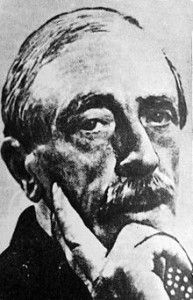Thursday

In his essay, “The Intimate Abstraction of Paul Valery,” Joseph Epstein writes that Valery spent his life in pursuit of one thing: to understand the functioning of the mind. In his effort, he sought supreme detachment, so he can sit back and contemplate what it is, exactly, that occurs in the mental world. It's an awesome thing (and makes one want to rush out and buy his essays and notebooks . . . though the mere act of rushing, I suppose, is anathema to the Valeryan mode). Valery knew it was an awesome thing: “[T]o raise the question of mind, of what is behind our thinking and how it really works is, as Valery knew, 'to call everything into question.”
The pursuit also made him somewhat contemptuous of ordinary pursuits. He (properly) loathed politics, cutting succinctly to the spiritual problem of that pursuit: “Valery could think of nothing in the realm of thought 'madder' or more vulgar 'than wanting to be right,' which is of course what politics is chiefly about.” In a related vein, he didn't care for history: “History teaches us . . . History will judge . . . That's a myth in two nonsenses.” He also pointed out that “history finally leads to politics, just as Bacchus used to lead to Venus.”
I love that last quote. It ties in nicely to a quote by Henry Kissinger that Howard Zinn uses at the beginning of A People's History of the United States: “History is the memory of states.” Which in turn ties in nicely with the (nonetheless accurate) cliché, “History is written by the victors” (if you doubt this, read Roman history and the field's enormous struggles with “source materials”).
Although I've long enjoyed history (and yes, I hold a bachelor's degree in it), my sentiments go with Valery, not with Kissinger (who liked the fact that the States told the histories, no matter the resulting distortion) nor even with Zinn, who, in his valuable effort to counter-balance State-written history, did some distorting of his own . . . in the interest of the leftist politics he favored (Zinn is no better than the historians he criticizes: he's different, but no better).
Politics is pursued by people who want things their way and will use force to get it. History is the story of those efforts, told from the politicians (oh so altruistic) view. Although I've never read anything by Valery, I'll take him and his detached secularistic contemplation over a host of historians and the politicians they serve.
